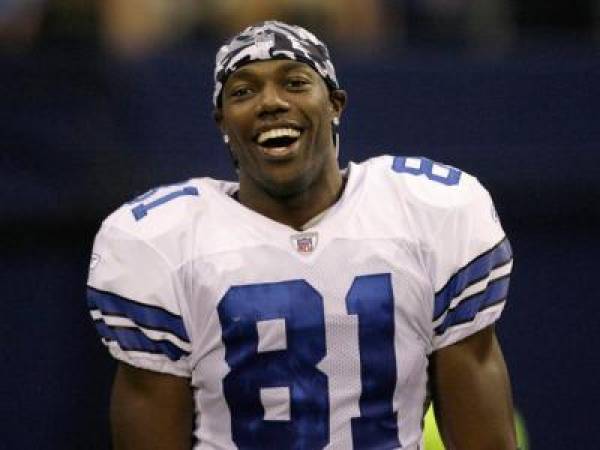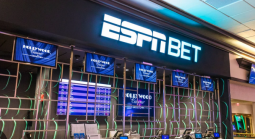25 NFL Players Tied to Alabama Bingo and Entertainment Operation Could Face Discipline

(AOL Sports) - Wide receiver Terrell Owens(notes) is one of at least 25 NFL players who could be forced to divest and face discipline from the league in connection with an Alabama bingo and entertainment operation that is hoping to re-open late this month or in July. NOTE: THIS STORY WAS ORIGINALLY PUBLISHED IN 2011 WITH MASSIVE READERSHIP BEING REPORTED OCTOBER 23, 2016.
Under the NFL’s rules barring an employee’s association with any gaming operation, Owens and other current players such as fellow wide receivers Santana Moss(notes) and Santonio Holmes(notes), defensive tackle Gerard Warren(notes) and linebacker Adalius Thomas(notes), could be forced to cease involvement. Owens did not respond to a phone call and email seeking comment. Other players could not be reached for comment through their agents.
According to multiple sources associated with the players or the operation, the athletes in question invested approximately $20 million total in a project now known as Center Stage, approximately 10 miles south of Dothan. Boxer Floyd Mayweather was also an early investor and has legally sought a return of his money. The project, which separately has a 20-year, $30 million bond that is being handled by the Lord Abbett investment company, was previously known as Country Crossing, but was shut down in February 2010 when electronic bingo halls in the state were closed for using illegal slot-machine lookalikes.
The shutdown led to former developer Ronnie Gilley pleading guilty to 10 counts of corruption revolving around his attempt to buy votes to approve casino gambling. Gilley is now a lead witness for the state in a corruption trial involving nine others. The trial began last week in Montgomery and threatens to uncover possible ties between former Gov. Bob Riley and Indian gaming interests in Mississippi.
From an NFL standpoint, the league currently has no authority to discipline players while it’s in the midst of an owners-initiated lockout. However, though the NFL has yet to contact financial advisor Jeff Rubin, who guided the players to the investment and is currently working to re-open the venture, a formal investigation and/or disciplinary action is possible once a new collective bargaining agreement is reached.
“If it were to be determined that an NFL employee had made an investment in violation of league policy on gambling-related activities, that individual would be directed to withdraw the investment and it would be reviewed for potential discipline,” NFL spokesman Greg Aiello said.
While retired players, such as former defensive end Jevon Kearse(notes) and defensive tackle Cornelius Griffin(notes), couldn’t be disciplined by the league, active players may face a fine or suspension. At the very least, they could be ordered to divest from the venture, which means the players could be out of a lot of money.
“I know four players with $7 million in this thing,” said a source closely connected to some of the athletes. “They keep getting told, ‘It’s going to re-open,’ then it gets pushed back again and again. This is a bad situation for a lot of these players.”
Attorney Keith Givens, who is representing Rubin and holds a private mortgage on the 375-acre property for the development, wrote in a letter last month that Rubin was working in Alabama to “re-open the entertainment venue.” Givens pointed out that, “No investor in this project has realized a loss.” Givens declined to identify any of the investors.
The well-manicured and maintained complex includes a grass amphitheater, three restaurants, a bed-and-breakfast, parking areas for 75 recreational vehicles, 60 tour buses and hundreds of cars, as well as plans for a hotel, retail shopping area, a water park and festival grounds. One of the restaurants featured the name of country singer Lorrie Morgan. That restaurant is now expected to be named after Thomas, featuring his A.D.licious barbeque marinade and recipes. Thomas, 33, is an Alabama native who did not play last season after being cut by New England in April.
However, thy key element to the complex is the ability of the bingo pavilion to draw customers.
Givens also wrote that the pavilion is a “charitable bingo” operation that is not considered casino gambling under Alabama law. The belief of those involved in the project is that the charitable bingo operation will allow for the recoupment of expenses associated with building the project. However, based on statements from Alabama Attorney General Luther Strange and an ongoing corruption trial going on in Montgomery, Ala., that belief may be tenuous.
The key is whether machines that Rubin and the other operators of the project plan to put in for the bingo halls pass the definition of the attorney general’s office. In May, Strange issued a strongly worded memo detailing what was defined as a legitimate bingo operation. According to a press release about the memo: “Slot machines and other gambling devices are illegal in all 67 counties [in Alabama]. Although several local constitutional amendments authorize ‘charity bingo’ in certain counties, no amendment authorizes slot machines or other illegal gambling devices in any county.”
In effect, Strange made it clear he would strictly enforce the state’s position against gambling, even in regard to bingo. Furthermore, the memo from Strange went on to strongly repudiate the stance of previous state attorney general Troy King.
“Under the previous attorney general, an advisory opinion was issued that in effect gutted these requirements. I have revoked this opinion,” Strange said.
On Wednesday, spokesperson Joy Patterson of the attorney general’s office indicated there could be more problems for the project.
“It is the position of the [attorney general’s] office that the various constitutional amendments on the subject of bingo allow only the traditional form of the game of bingo,” Patterson wrote via email. “These amendments did not legalize for-profit casinos. In general, they are designed simply to authorize churches and charities to use their own volunteers to run the traditional game.”
That statement could make it difficult for Rubin and the other operators of the project. According to two sources, Rubin has been operating under the belief that a portion of the money raised in the “charitable bingo” operation could be used to pay the expenses associated with building and running the bingo operation. Technically, the money would be handled by the Houston (County) Economic Development Association, which also determines which charities would benefit from the proceeds.
What all of that means for the players is that there may not be enough money generated through the bingo operation for them to get their money back right away. The other businesses, such as the restaurants, are not expected to generate enough earnings to pay off expenses quickly. Any move by the NFL to force the players to divest could make it tough for players to recoup their money.
Fred Taylor(notes),then with the Jacksonville Jaguars, was bilked of $5 million in 2000.
All of this also threatens to upend the career of Rubin, who at one time was considered one of the top financial advisors in the NFL community. Rubin represented approximately 60 players at one time and was a key cog in the federal investigation into infamous former agent Tank Black in the late 1990s. Rubin’s work helped put an end to several players, including running back Fred Taylor, losing millions of dollars in a Ponzi scheme Black participated in by diverting their money to offshore accounts.
“He was one of the giants in that part of the business. He helped a lot of guys. But this situation has really hurt him,” said a source familiar with many of Rubin’s current and former clients. “If guys don’t at least get their money back, there’s going to be a lot of anger.”
Rubin, who declined to comment, is trying to salvage the project which has been given a black eye following last year’s Country Crossing closing and subsequent scandal. Last week, nine people involved in the scandal went on trial, including fellow former casino bingo operator Milton McGregor.
The scandal runs so deep that McGregor is trying to subpoena Riley to testify. In 2006, it was revealed in a U.S. Senate committee report that Riley received $13 million in donations for his campaign in 2002 from the Mississippi Band of Choctaw Indians. Disgraced former Washington lobbyist Jack Abramoff, who was imprisoned for mail fraud and conspiracy after a senate corruption investigation, reportedly used that information to gain leverage with other Indian tribes. Abramoff, according to the senate report, told other tribes with gaming interests that the Choctaws donated to Riley to protect their gaming interests by keeping gambling out of Alabama.
Jason Cole is a national NFL writer for Yahoo! Sports. Follow him on Twitter. Send Jason a question or comment for potential use in a future column or webcast.
Updated 4 hours, 8 minutes ago













